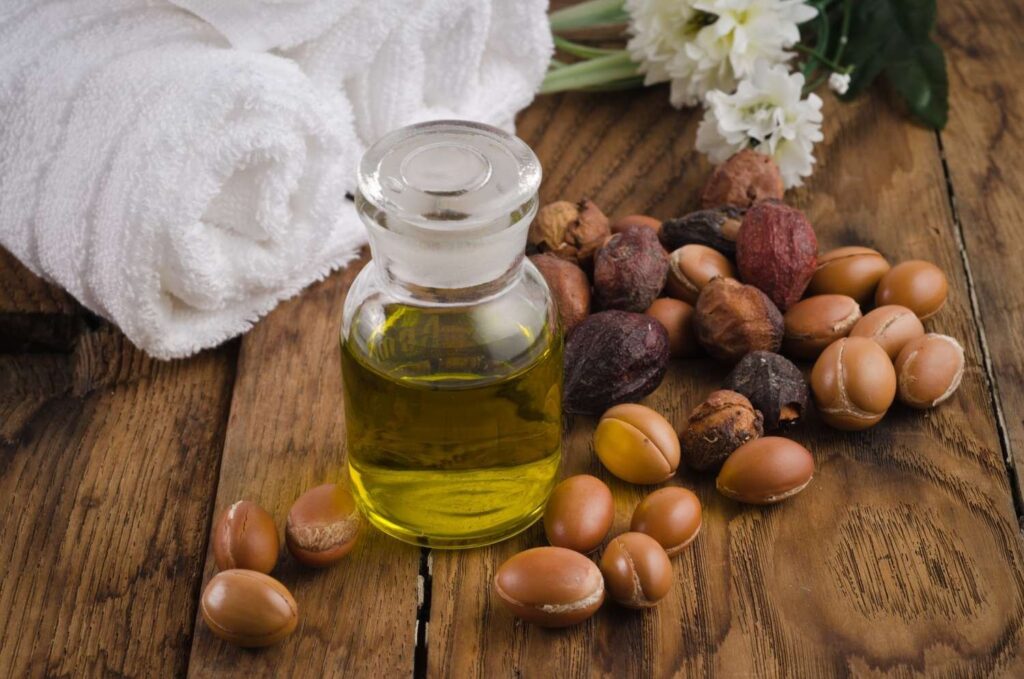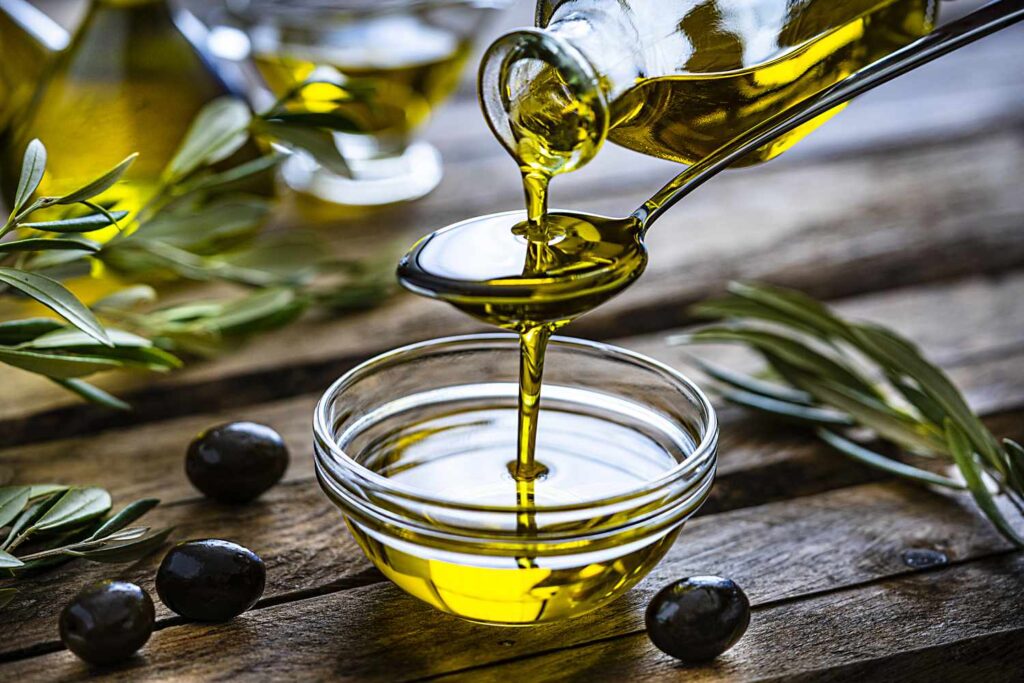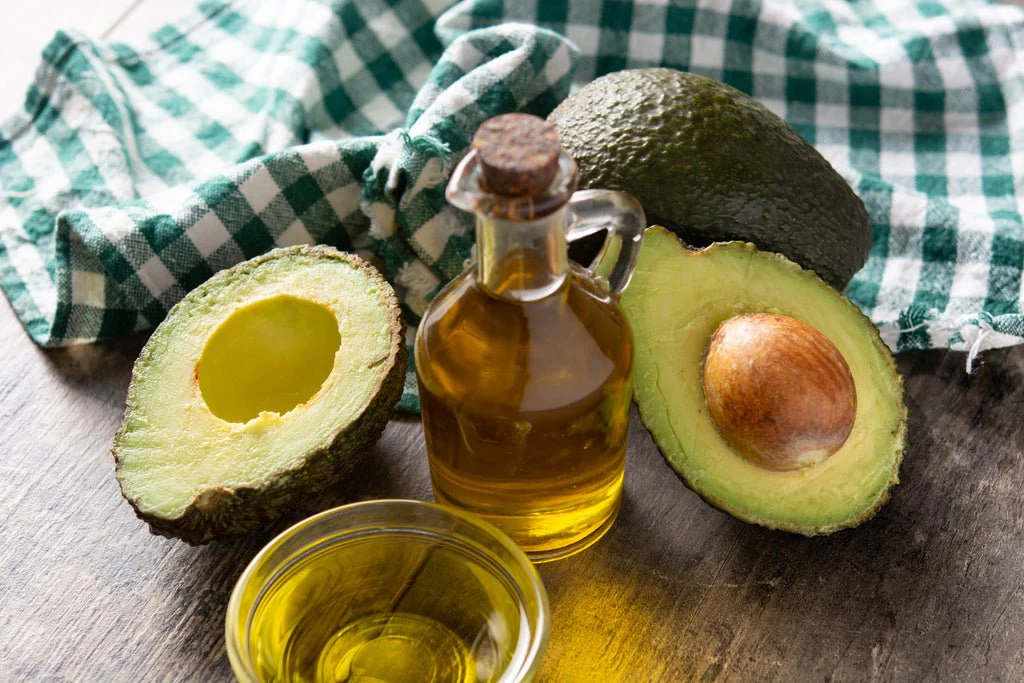With winter weather in full swing, your skin gets parched and tight! Cold weather, indoor heating, and low humidity can strip away your skin’s natural moisture, leaving it vulnerable to dryness, irritation, and even cracks. The solution? Natural oils! Packed with essential fatty acids, vitamins, and antioxidants, natural oils can deeply hydrate, protect, and nourish your skin, giving it the moisture boost it needs during the winter months. Here are some of the best natural oils for winter skin hydration.
Argan Oil

Argan oil, often called “liquid gold,” is a go-to for deep skin hydration. Rich in vitamin E and essential fatty acids, this lightweight oil absorbs quickly into the skin, leaving it soft and smooth without feeling greasy. Argan oil helps to repair dry, damaged skin and is perfect for maintaining your skin’s moisture barrier. It’s also known to help reduce signs of aging, making it a must-have for your winter skincare routine.
How to Use: Apply a few drops of argan oil to your face and body after showering while your skin is still damp to lock in moisture. It’s also great for dry cuticles and cracked heels.
Jojoba Oil

Jojoba oil is incredibly similar to the skin’s natural sebum, making it an excellent oil for winter hydration. It helps to replenish your skin’s natural oils, providing deep hydration without clogging pores. Jojoba oil is also known for its anti-inflammatory properties, which help soothe irritated or sensitive skin that often worsens during colder months. It’s non-comedogenic, so it’s perfect for all skin types, including acne-prone skin.
How to Use: Massage a small amount of jojoba oil onto your face or body, focusing on areas that are especially dry, like elbows or knees. You can also add a few drops to your moisturizer for an extra hydration boost.
Coconut Oil

Coconut oil is a heavy-hitting oil for intense hydration. Rich in lauric acid, it deeply penetrates the skin to lock in moisture and create a protective barrier. It also has antifungal and antibacterial properties, which are great for preventing winter skin irritation and infections. While it’s a bit thicker than other oils, it’s excellent for areas that need extra moisture, such as your hands, feet, and elbows.
How to Use: Apply coconut oil to areas that are severely dry or cracked. You can also use it as an overnight treatment by massaging it into your skin before bed. For an extra soothing experience, use coconut oil as a hair mask to combat winter dryness on your scalp.
Rosehip Oil

Rosehip oil is a powerhouse when it comes to rejuvenating and hydrating dry, winter skin. Packed with essential fatty acids, antioxidants, and vitamin A, it helps to repair skin cells, reduce scars, and restore the skin’s moisture balance. It’s especially great for dull or aging skin, as it promotes collagen production, leaving your skin looking plump, smooth, and hydrated.
How to Use: Apply rosehip oil to your face and neck, gently massaging it in. It works wonders as a nighttime treatment, allowing it to deeply hydrate and regenerate your skin while you sleep.
Almond Oil

Almond oil is a gentle, nourishing oil that’s perfect for sensitive or irritated skin. Rich in vitamins A, E, and B, almond oil helps to soften and soothe dry skin, providing a protective barrier that locks in moisture. It’s also known for its anti-inflammatory properties, making it ideal for treating conditions like eczema or psoriasis, which tend to flare up in colder weather.
How to Use: Massage almond oil into your skin after a warm bath to seal in moisture. It can also be used on your face or hands as a gentle hydrating oil.
Olive Oil

Olive oil has been used for centuries for its moisturizing and healing properties. Full of vitamins A, D, and K, as well as antioxidants, olive oil helps to protect the skin from harsh weather conditions while providing intense hydration. It’s perfect for those who suffer from extreme dryness and need an extra boost of moisture during the winter months.
How to Use: Apply olive oil to dry patches on your body, such as elbows, knees, or feet. You can also mix it with a little sugar for a DIY exfoliating scrub that hydrates while removing dead skin cells.
Avocado Oil

Avocado oil is rich in vitamins E, K, and C, making it an excellent oil for nourishing and rejuvenating winter-dry skin. It’s especially beneficial for those with very dry or mature skin, as it helps to repair the skin’s moisture barrier and boost collagen production. Its thick, creamy texture provides long-lasting hydration and leaves the skin feeling soft and plump.
How to Use: Apply avocado oil to your skin after a shower to lock in moisture. It’s also great as an overnight facial treatment for extra hydration and nourishment.
Tips for Maximizing Winter Hydration with Natural Oils
- Apply oil on damp skin: To lock in maximum moisture, apply oils right after a shower or bath while your skin is still slightly damp. This helps to trap hydration and leaves your skin feeling soft and dewy.
- Don’t forget your hands and feet: Winter dryness tends to hit the hands and feet first, so don’t skimp on oiling up these areas. Consider wearing cotton gloves or socks overnight after applying oil for an extra dose of hydration.
- Use oils in combination: For a more customized skincare routine, feel free to blend different oils to meet your skin’s unique needs. For example, combine rosehip oil with coconut oil for a nourishing yet lightweight moisturizer.
[Contributed By Anushka Gaikwad]











